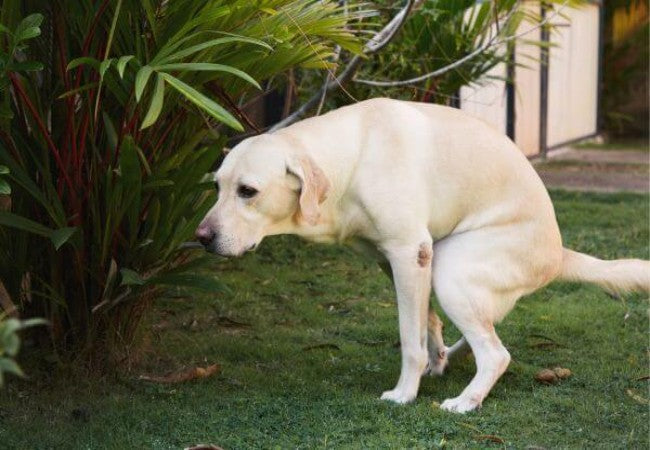Mucus in Dog Poop – Vet Led Guide 2025 🐶🌀

In this article
🩺 Mucus in Dog Poop – Vet‑Led Guide 2025 🐶🌀
By Dr. Duncan Houston BVSc
Hello, I’m Dr Duncan Houston, BVSc, founder of Ask A Vet. Let’s explore why you might spot mucus in your dog’s stool—when it’s normal, when it’s not, and what you can do to help. Packed with practical tips, treatment plans, and holistic support, this guide empowers you and your pup back to find comfort. 🐾
⚙️ What Is Mucus in Dog Poop?
Mucus is a natural lubricant lining the intestines—normal in small amounts. But large amounts, especially with other signs like blood, diarrhea, or vomiting, may hint at colitis, digestive upset, or infection .
✅ Normal vs Abnormal
- Normal: Thin, clear/white mucus, occasional occurrence, no other symptoms.
- Abnormal: Thick, coloured (yellow, green, bloody), frequent, or with diarrhea, vomiting, pain, lethargy .
🔍 Common Causes & When to Worry
1. Dietary Change or Indiscretion
A sudden food switch, a new treat, or “gut upset” from eating trash can temporarily cause mucus .
2. Food Intolerance or Allergy
Intolerances (e.g., chicken, grains) may trigger GI upset, inflammation, and mucus .
3. Infections & Parasites
Bacterial (e.g., E. coli ), viral (parvo), or parasites (Giardia, whipworms) can all inflame the colon, causing mucus ± diarrhea or blood .
4. Inflammatory Bowel Disease (IBD) or Irritable Bowel Syndrome (IBS)
Chronic inflammation (IBD) or stress‑related colitis (IBS) presents with recurrent mucus, diarrhea, and sometimes vomiting .
5. Stress and Environment
Moving, kenneling, or anxious periods can provoke a colitis flare with mucus .
6. Obstruction or Tumors
Foreign bodies or GI tumors can irritate or partially block intestines—mucus ± blood, straining, pain .
🔬 When to Contact a Vet Immediately
- Mucus with blood (bright red or black tar)
- Persistent diarrhea (>24 hrs) with mucus
- Vomiting, lethargy, abdominal pain, and appetite loss
- Signs of dehydration or weight loss
- Behavioral changes or straining to defecate .
🔧 Diagnostic Approach
- Medical history: timeframe, diet, stressors.
- Physical exam: abdominal palpation, hydration, and fever.
- Fecal tests: parasite and bacterial cultures.
- Bloodwork: CBC, chemistry for systemic illness.
- Imaging: X‑rays or ultrasound if obstruction or chronic issues are suspected.
- Advanced tests: Endoscopy or colon biopsy if IBD or tumors are suspected .
💊 Treatment Strategies
A. Home Care for Mild Cases
- Fasting: 12–24 hrs water only, then bland boiled chicken & rice or pumpkin diet for 3–5 days .
- Probiotics: Support gut flora (e.g., Purina FortiFlora) .
- Fiber/Pumpkin: Helps firm stool and soothe colon .
- Slippery elm bark: Gentle anti-inflammatory coating for GI lining .
- Stress reduction: Calm routines, enriched environment,
B. Veterinary Treatment
- Deworming: For parasites per fecal tests .
- Antibiotics: For bacterial infections (metronidazole, tylosin) .
- Anti-inflammatories: Prednisone for colitis or IBD .
- Diet therapy: Hydrolyzed or novel-protein diets for allergies .
- Surgery/endoscopy: For obstructions or GI tumors .
📅 Prognosis & Recovery
- Mild dietary or stress-related mucus usually resolves within a few days .
- Parasite or infection-related cases improve with deworming or antibiotics.
- Chronic IBD may require ongoing medication, dietary trials, and occasional flare treatments.
- Obstructions and tumors: prognosis depends on timely intervention and the extent of disease.
🏡 At‑Home Monitoring & Care
- Check stool daily—note frequency, colour, consistency, mucus or blood.
- Track appetite, behavior, hydration, energy.
- Provide bland diet during recovery; gradually reintroduce normal food.
- Keep stress low; maintain routine, walks, and mental enrichment.
- Use probiotic supplements long-term for gut health support.
🐾 Integrating Support
Need help during a scary bout of digestive upset? Chat anytime with Ask A Vet for advice on dosing, monitoring, or next steps. Find calming. Together, we're here to support comfort and health. 💕
✨ Key Takeaways
- Small amounts of mucus can be normal; persistent, thick, colored, or bloody mucus means vet attention is needed.
- Causes can range from simple diet hiccups to infections, parasites, inflammatory disease, or obstructions.
- A stepwise approach—home care → diagnostics → targeted treatment—works best.
- Diet, probiotics, stress reduction, and home monitoring can aid recovery and prevention.
- When in doubt, reach out to your vet or use Ask A Vet for fast guidance and reassurance.
Spotted mucus? Don’t ignore it. Reach out early via your vet or Ask A Vet—and let's help your pup feel like themselves again. 🐾❤️






